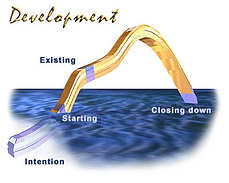 Courtesy Gallup
Courtesy Gallup
Gallup's 2013 State of the American Workplace Report came out a few days ago and finds that between 1010 and 2012 only 30% of workers report being actively engaged at work, 50% are unengaged, and 20% are actively disengaged (working against the company's interest). The report estimates that this high number of unengaged workers costs the US up to $550B annually. These losses result from absenteeism, health and safety issues, quality defects, and lost productivity.
There are a number of interesting findings in the report. But I am interested today in the recommendations for addressing the problem
Gallup identifies three main ways for companies to increase employee engagement. I'd like to focus on just the second, because it is so key to people's careers and transitions, my particular areas of interest:
"The research shows that people who use their strengths every day are six times more likely to be engaged on the job."
We can fairly say, then, that if we increase employee engagement by 60%, we've gotten a lot closer to the desired fully engaged workforce. That's a huge impact! Even though Gallup employs "strengths-based" terminology, many of us this see the concept as very close to what we now call "personal branding."
So what are the Gallup Report recommendations to improve engagement?
They advise that employers and managers actively help their employees to discover and use their strengths, as distinguished from their weaknesses. The idea is to identify what workers are doing and what skills they are employing when they are being the most productive (and fully engaged). Then they need to make sure to assign them the kinds of tasks that require those skills.
In personal branding, we identify a person's "unique promise of value." This is a concept formulated by William Arruda. It includes what a person does best (talents), skills, his/her attributes, unique knowledge base, the value s/he delivers consistently, personal style, and similar factors.
Gallup found that when teams focused on team members' strengths, productivity goes up 12.5% and translates into increased revenues and profitability.
Whether managers and staff choose to use Gallup's strengths-based tools, branding processes such as Reach Personal Branding, or any other related instrument, they have the power to improve lives and businesses to a remarkable degree, according to the findings.
What can you do today to discover your strengths or remind yourself of them, if you already know them? If you manage others, what can you do today to ensure that your staff are using their individual strengths? If you are managed, how can you influence your manager to make use of your unique constellation of skills, attributes, and talents?
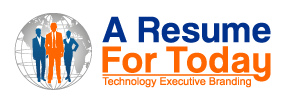

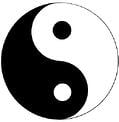
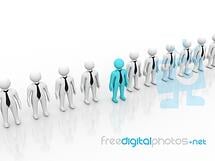

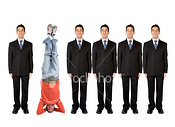
 William Arruda, The Personal Branding Guru, is known for "seeing around the corner."
William Arruda, The Personal Branding Guru, is known for "seeing around the corner." 
